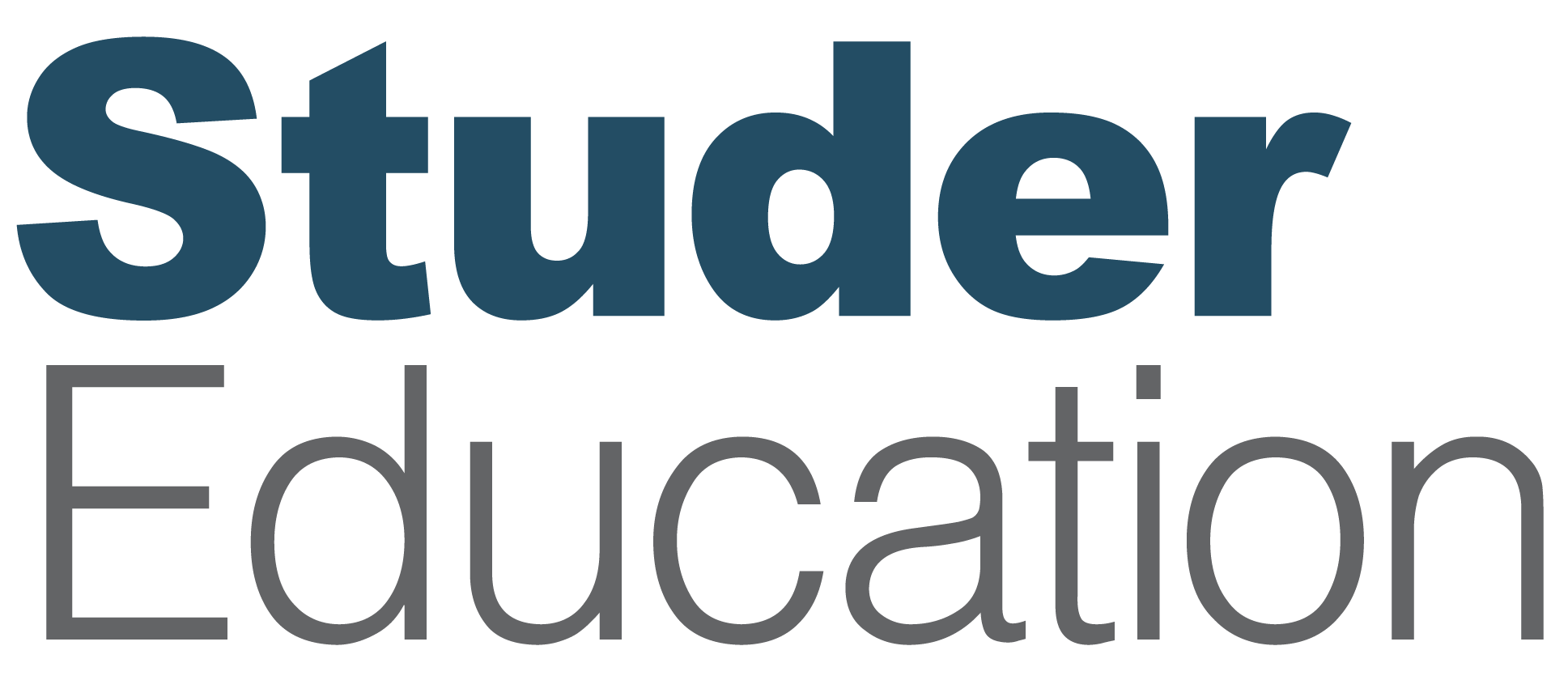
Why should educational leaders consider adopting a startup mentality? Dr. Janet Pilcher answers this question and guides you through the essential leadership and mindset shifts needed to thrive in today’s evolving educational landscape. Tune in and learn which behaviors to embrace and which foundational principles to uphold.
This episode addresses questions such as:
- What’s the difference between leading with a legacy mentality and leading with a startup mentality?
- How can educational systems move from good to great?
- What are some characteristics of a startup that educational systems need to incorporate into their business model?
Recommended Resources
Latest Episodes
[Intro music plays in the background.]
Janet Pilcher: Hello everyone, welcome to today’s episode of the Accelerate Your Performance podcast. I’m Dr. Janet Pilcher, founder and president of Studer Education.
Sometimes I produce a solocast that pushes the envelope in our thinking. I do so when there are extraordinary things I learn while working with executive leaders throughout the country. Today’s topic pushes us to advance our leadership mindset and skills to lead organizations to succeed in the next decade.
Here are three areas that I focus on today. First, the difference between leading organizations with a legacy mentality and a startup mentality. Second, leadership behaviors that change when applying a startup mentality. And third, leadership behaviors that stay the same even though a continuous landscape of change is constantly in front of us.
So take a moment and think about how school systems, higher education systems, and legacy businesses run and work. For the most part, they function as large, established organizations that have deeply embedded inflexible systems and processes. In many cases, these organizations can continue to function when inconsistencies exist in performance and results.
The size allows for some units to exhibit poor performance that is hidden within the aggregate data. Some areas are doing well and others are not. When this occurs, organizations may be good but never great. And therefore, too many organizations tend to settle for good.
At Studer Education, we apply an evidence-based framework that takes educational systems from good to great. It’s important for us to break apart the poor performance that’s hidden within legacy systems. That is, every part of the organization strives to hardwire excellence to achieve greatness. That’s what we strive for.
Many K-12 and higher educational systems are established. They’re legacy organizations. As I’ve been working with these organizations, the leaders and I talk about the external factors that are and will continue to influence change.
We ask, “do we hang out and wait for it to happen to us or do we get ahead of it?” And many of my conversations in the past six to nine months have focused on how we get ahead.
Also, as many of you know, our business has experienced a change from being part of a large company to becoming our own small company. It gives us an even better opportunity to advance our work with some of the most exceptional educational leaders in the country. So we, too, are going through a change.
Let’s talk about how we frame our minds to change the way we lead our organizations. I’m asking leaders to think about how to act more like a startup organization. That’s not easy because it means disrupting what we know and are comfortable doing. This reminds me of the individual phases of change we speak about in our work with leaders.
When we gain enough experience to do our jobs without hesitation as part of a familiar routine and are asked to change our behaviors, we naturally resist. We’re comfortable with the way things are. To achieve greatness, we simply do not have that luxury of staying the same.
Because of the changing landscape in our industry, we’re being disrupted. That’s probably something that will stay the same for many years to come. Therefore, leaders need advanced skills focused on how to lead in a constantly changing landscape driven by disruptive change.
Today, leaders are called to create a path to a new future. It requires us to gain skills to apply a new type of leadership model, one in which we lead more like a startup operation than a legacy one.
What does it mean to act like a startup? When answering this question, let’s clearly define why we do what we do. When we do that, we reflectively ask, “what is our passion as educational leaders? What impact do our organizations contribute to our communities? What value do we provide to others? Through the changing landscape in education, what will we do to better our profession? In fact, what will it take to make our education profession one of the best, most sought after professions? Why is it important to even answer these questions?”
Because we’re responsible for giving students every opportunity to be successful in life, which is one of the most important jobs in our society. So having a startup mentality is mission driven. How does a startup mentality change the way we currently do business? Here’s one important difference. We focus on the outcomes we are trying to achieve rather than the roles that people have in the organization. We focus on what it takes to get the jobs done and we pitch in to ensure we achieve success. In essence, startups don’t rely on established ways of working.
Now think of how disruptive this can be. In education we’ve established systems that have been around for decades. We’re asking our teams to work with us as leaders to build the plane as we fly it, so to speak. As leaders we rely on people in our organizations being flexible and open to address problems and opportunities as they arise. That’s different than expecting processes and systems being perfect before implementing. Rather we put something in place, we determine how it works and how it doesn’t work, and we make changes quickly where we can.
It’s less about judging what is occurring and more about evolving ourselves to get better and better and improve our results.
In summary, in startups we apply iterative approaches to scale what works, adjust where needed, and abandon what isn’t working. A startup requires breaking apart established formal structures and roles to be more responsive to changes needed through a continuous learning process. A startup mentality accepts that we put something in place and quickly pivot when it’s not working. In larger systems we’ve typically invested our energy and resources and initiatives that have layers of steps prior to and during implementation with little follow-up and discussion about whether that initiative is working or not. Learning why things are not working is as important as learning what is working.
What else do we have to change to act like a startup? Let’s look at how legacy organizations function. Legacy businesses push for profitability and to get there quickly. Profitability is a key outcome. How does that translate to legacy educational systems? Student achievement is a key outcome in education. In educational systems we spend money on programs and products intended to produce quick student achievement results. We’ve witnessed millions of dollars spent with little return.
So how do we rethink how we get to key results? In business, startups realize it takes time to become profitable. Therefore a startup must live within its means and potentially gain additional capital or loans to use to invest in ways to grow their bottom line.
Not so different than business, in today’s world educational systems are learning to live within their means because of reduced funding, declining enrollments, higher competition, and so on. Therefore educational systems need a solid business model and new ways of doing business to develop their leaders to lead this way.
The business model needs to include some of the startup characteristics we’ve talked about today. We try new structures, processes, and approaches while balancing these efforts with achieving positive results in our core business. We keep the core business intact ensuring students have every opportunity to succeed as we intentionally disrupt the status quo to become better than we are today.
That’s what our work at Studer Education is all about. We focus on supporting educational leaders to understand how to apply a type of business model to advance and improve our educational systems. To be good stewards of our services, we do the same in our own organization. Taking this action is indeed a necessary heavy lift for today’s leaders. Thank you to the leaders who assume this responsibility.
I end today’s episode with reinforcing three important areas that stay the same. They stay the same as we navigate this changing landscape. That’s also what our work at Studer Education is all about.
So what stays the same? First, we support our people with a work environment that gives them every opportunity to be successful in serving those we provide services to and that aligns to our evidence-based framework.
And second, we have the courage to make difficult decisions when needed to ensure we continue to offer our services to live out our mission of contributing to education being the best profession of choice.
And third, we develop leaders to support their teams to achieve positive results and continue to improve.
I’ve spent over three decades leading organizations. I’m humbled every day by how difficult leading is. And what I’ve presented today is challenging and necessary. As we lead like a startup, we will achieve high impact results that will leave a lasting contribution in the world. That is an awesome responsibility.
[Outro music plays in the background.]
I thank you for tuning in to this episode of Accelerate Your Performance. I appreciate your time, appreciate your leadership, appreciate your engagement as a team member to take our organizations to the next level to be the best that we can for our students and our families and our communities. Have a great week, everyone.








